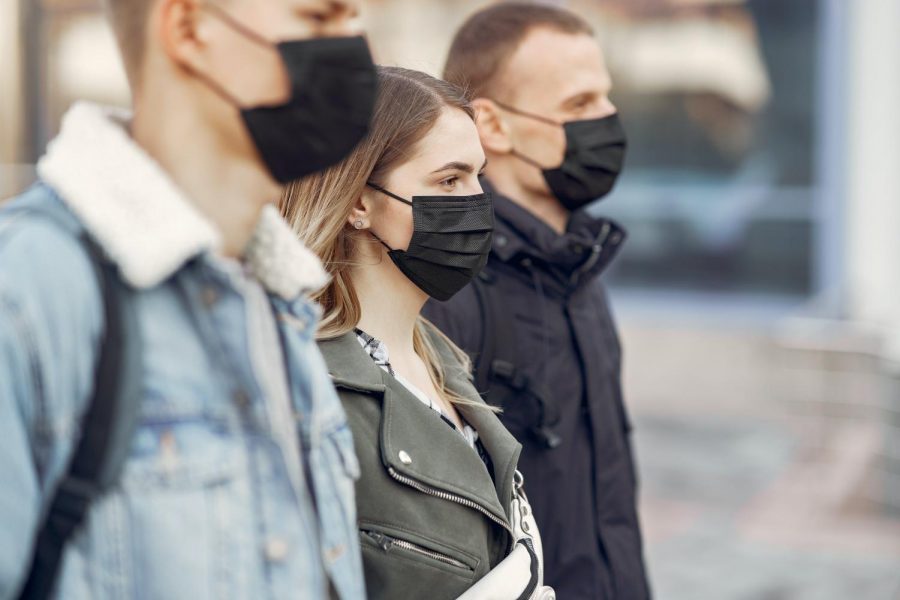Coronavirus on College Process
June 6, 2020
Normally this time of year juniors should be focusing on the SATs, visiting colleges, and getting ready for a fulfilling summer before they apply for colleges. The effects of the coronavirus pandemic have been widespread. Students all across the country are struggling to balance online classes with the college process.
Junior year, especially the spring, is an essential time for students to get their grades up and show growth if they have struggled in previous years. Due to the unprecedented nature of having to navigate mass online classes, students and teachers alike are struggling to adapt to the new system and maintain their previous standard of education. Additionally, some schools have decided to forgo letter grades for the spring semester and adopt a pass fail system. In these conditions, it is difficult for students to shine their brightest and for colleges to assess growth.
Standardized testing has been a hot topic in recent years, and the pandemic has only aggravated the issue. Colleges who have historically been firmly in favor of standardized testing are joining other colleges as test optional for the next two or three years. Already numerous SAT and ACT test dates have been cancelled or postponed. Estelle Hegenbarth ’21 noted with disappointment, “My SAT has gotten canceled twice and I am going to have to study over the summer.” Though the College Board maintains that there will be testing available in the fall, the future of standardized tests is uncertain at best. However, in order to help ease this process, WFS will be offering an SAT and possibly an ACT for Friends students in the fall.
In the very worst case scenario, there is a possibility of the tests being held online. AP tests, also administered by the College Board, were held online this spring. The result was far from perfect. Many students do not have access to the internet or a space to work and are at a disadvantage. Additionally, numerous students have reported major issues with the online format which will result in them having to retake the exam. On the other hand, IB has cancelled spring exams and will evaluate students based on prior projects.
Extracurriculars are extremely useful for understanding who a student really is. What we choose to do with our spare time says a lot about character, engagement, and intellectual curiosity. Many summer programs, internships, and volunteer opportunities have been cancelled for the foreseeable future. While the pandemic has closed many doors in this department, it has also allowed for students to show how resourceful and creative they can be under pressure. Whether it’s making masks or virtually showing support for hospitals and communities in need or designing a self taught summer program on a topic of interest, there is a lot of room for students to still have a meaningful a summer.
Like most other aspects of the process, athletic recruitment has gone digital. Athletic events and tournaments all across the country have been cancelled. For sports like lacrosse, baseball, spring track, and tennis, students simply don’t have the same opportunities as in previous years. While sports is certainly not the most pressing issue of the pandemic, it is very important to some students who are reliant on athletic scholarships to gain a college education.
Another major problem for students is deciding which colleges to apply to without being able to visit. Colleges have a responsibility in this time to improve their websites so that students are able to gain an academic and cultural understanding of the college. Unfortunately, great advertising means that students are only seeing what colleges want them to see. Websites like Niche, which gather student input and comments, are extremely helpful during this time. (Though they should, of course, be taken with a grain of salt.) Annina Lappalainen ’21 added, “I feel that the whole pandemic makes college applications more stressful because not everyone has taken tests and those who have taken their tests didn’t get scores they are happy with and they might get rejected because of it. Plus not all colleges are test optional so some students can miss out on applying to their dream school because of it.” Narrowing down college lists and making the best decision for oneself and their family is yet another challenge that students must face.
Students and families also have to make the difficult decision of whether college is currently an option. The pandemic has been economically devastating. Layoffs and pay cuts have forced families to cut costs and dip into their savings. It is uncertain how many students will take a gap year and how many will plan to immediately seek employment after graduation.
The pandemic has left a lot of room for uncertainty for current and future graduating classes. College admission counselors are doing their best to offer guidance and assurance during this time. At WFS, the class of 2021 has received tremendous amounts of resources and support. While we struggle to navigate these unprecedented times, we can all rest assured that colleges are doing their best to adapt and to maintain good judgement in evaluating potential candidates.































